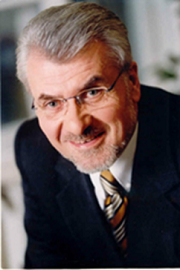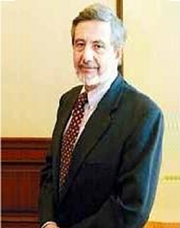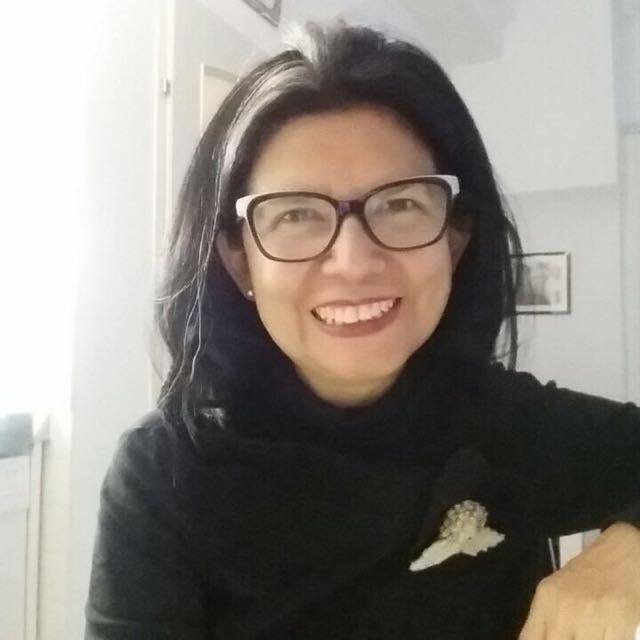|
|
Dinesh Abrol, Professor, ISID Dinesh Abrol is currently working at the Institute of Studies in Industrial Development (ISID) India, where he coordinates the ISID-PHFI collaborative research program on innovation, industry and public health. He is also a visiting professor at the Centre for Studies in Science Policy. Before that, he was chief scientist at the National Institute of Science Technology and Development studies (NISTADS). Abrol is known for his research work on pharmaceutical industry, intellectual property, innovation management, technology assessment and science, technology and innovation (STI) policy. His collaborative research projects include collaborations with the scholars contributing to the research institutions of Argentina, Brazil, China, United Kingdom and United States working on a wide range of interconnection topics arising out of the formulation of technology policies for latecomer countries with large populations and huge development deficit like India, Brazil and China. |
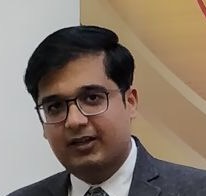 |
Mr Chandan Bhavnani, Executive Vice President, Responsible Banking, YES BANK
Chandan is a sustainability professional with about 10 years of experience in the areas of sustainability strategy, management frameworks, low carbon growth and ESG risk management. He has worked with national and international organizations and standards such as GRI reporting, IFC performance standards, ISAE3000 and AA1000. At YES Bank, he is responsible for supporting climate finance and CSR activities including developing new avenues of mainstreaming climate and sustainable finance, CSR project conceptualization & implementation and supporting triple bottom line management. He leads the knowledge and policy advocacy work for the Responsible Banking vertical of the Bank. He is also responsible for handling key relationships for the Bank in the Environment and Social domain across Businesses, Think-tanks and Government institutions.
|
|
|
François Bourguignon, Professor, Paris School of Economics François Bourguignon is director of studies at the École des Hautes Études en Sciences Sociales - EHESS. Originally trained as a statistician, he earned a PhD in economics from the University of Western Ontario and a PhD from the University of Orleans. He held the position of Director of the Paris School of Economics from 2007 to the end of January 2013. His theoretical and empirical work focuses on income distribution and redistribution in developing and developed countries. Bourguignon is the author of several books and numerous articles in international economic journals. He has received during his career several scientific distinctions and taught at several foreign universities. He has a wealth of consulting experience with several governments and international organizations. From 2003 to 2007, he was the chief economist and first vice president of the World Bank in Washington. He is currently Chair of the GDN Board of Directors. |
|
|
R. Chidambaram, Principal Scientific Advisor to the Government of India R. Chidambaram is one of India’s distinguished experimental physicists and he has made outstanding contributions to many aspects of basic science and nuclear technology. Currently he is the principal scientific advisor to the Government of India and chairman of the scientific advisory committee to the Cabinet. He is also a member of the Prime Minister’s council on climate change, chairman of the high-level committee for the National Knowledge Network and a member of the Space Commission. Previously, he has been director of the Bhaba Atomic Research Institute, chairman of Indian Atomic Energy Commission, and chairperson of the board of governors of the International Atomic Energy Agency (IAEA). He has D.Sc degrees from more than twenty universities in India and abroad, and has been awarded the Padma Shri in 1975 and Padma Vibhushan, the second highest civilian award in India, in 1999. He received his PhD from the Indian Institute of Science, Bangalore in 1962. |
|
|
Bill Colglazier, former Science and Technology Adviser to the U.S. Secretary of State, AAAS E. William Colglazier is Editor-in-Chief of Science & Diplomacy and Senior Scholar in the Center for Science Diplomacy at the American Association for Advancement of Science (AAAS). He served as the fourth Science and Technology Adviser to the Secretary of State from 2011 to 2014 to provide scientific and technical expertise and advice in support of the development and implementation of U.S. foreign policy. From 1994 to 2011, he was executive officer of the U.S. National Academy of Sciences (NAS) and the National Research Council (NRC) where he helped to oversee the studies that provide independent, objective scientific advice on domestic and international public policy issues. In 2015 Colglazier received the Joseph A. Burton Forum Award from the APS for "outstanding contributions to the public understanding or resolution of issues involving the interface of physics and society" among other accolades. In 2016, he was appointed by the UN Secretary General as one of the ten international members to support the technology facilitation mechanism to promote the role of science, technology, and innovation for achieving for the 2030 agenda for sustainable development. Colglazier received his PhD. in theoretical physics from the California Institute of Technology in 1971. |
 |
Stefan Dercon, Professor of Economic Policy, University of Oxford Stefan Dercon is Professor of Economic Policy at the Blavatnik School of Government and the Economics Department, and a Fellow of Jesus College. He is also Director of the Centre for the Study of African Economies. Between 2011 and 2017, he was Chief Economist of the Department of International Development (DFID), the government department in charge with the UK’s aid policy and spending. In this position, he provided strategic advice, and was responsible for ensuring the use of evidence in decision making. Before joining the University of Oxford, he held positions at the University of Addis Ababa (Ethiopia), the Catholic University of Leuven, and WIDER (Helsinki), part of the United Nations University. |
|
|
Shenggen Fan, Director General, International Food Policy Research Institute (IFPRI) Shenggen Fan (樊胜根) has been director general of the International Food Policy Research Institute (IFPRI) since 2009. He joined IFPRI in 1995 as a research fellow, conducting extensive research on pro-poor development strategies in Africa, Asia, and the Middle East. He led IFPRI’s program on public investment before becoming the director of the Institute’s development strategy and governance division in 2005. He is one of the champions of Target 12.3 of the Sustainable Development Goals, dedicated to inspiring ambition, mobilizing action, and accelerating progress toward cutting global food loss and waste. He serves as a member of the Lead Group for the Scaling Up Nutrition (SUN) Movement appointed by UN Secretary General Ban Ki Moon. He also serves as advisor to many national governments (including China and Vietnam) on agriculture, food security and nutrition. In 2017, Fan received the 2017 Fudan Management Excellence Award and the Hunger Hero Award from the World Food Programme. Fan received a PhD in applied economics from the University of Minnesota and bachelor’s and master’s degrees from Nanjing Agricultural University in China. |
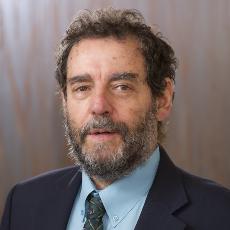 |
Alan Gelb, Senior Fellow and Director of Studies, Centre for Global Development Alan Gelb is a senior fellow and director of studies at the Center for Global Development. His recent research includes aid and development outcomes, the transition from planned to market economies, the development applications of biometric ID technology, and the special development challenges of resource-rich countries. He was previously director of development policy at the World Bank and chief economist for the bank’s Africa region and staff director for the 1996 World Development Report “From Plan to Market.” |
|
|
Anil Gupta, Executive Vice Chair, National Innovation Foundation Presently, Anil Gupta is a Professor at the Indian Institute of Management, Ahmedabad and Visiting Professor of Innovation Management in Emerging Markets, European Business School, Berlin. He is also Executive Vice-Chair of the National Innovation Foundation. Gupta founded the Honey Bee Network and is Coordinator for SRISTI and Secretary, GIAN. His mission is the expansion of the global as well as the local space for grassroots innovators by ensuring them recognition, respect and reward. He has set up a twin center for grassroots innovation in collaboration with Tianjin University of Finance and Economics, China. He received the Padma Shri in 2004, and several other awards including the Asian Innovation Award Gold from the Far Eastern Economic Review 2000 for coordinating the SRISTI and the Honey Bee Network and the Pew Conservation Scholar Award 1993-96 at the University of Michigan, USA. |
|
|
Parminder J. Singh, Executive Director, IT for Change Parminder Jeet Singh is executive director of IT for Change and leads the organization’s work in the areas of Internet governance, e-governance and development in the digital age. At the global level, he has played a major role in shaping a southern discourse on global internet governance, and a positive rights-centred approach to cyberpolicy. Singh is a founding member of three key global coalitions in the Internet governance domain – Just Net Coalition, BestBits and Internet Rights and Principles Coalition. He also leads the secretariat of the Internet Social Forum, a thematic forum of the World Social Forum, slated as a key progressive civil society space for mobilizing for a people's Internet. |
|
|
Pierre Jacquet, President, Global Development Network (GDN). Pierre Jacquet is the fourth president of the Global Development Network (GDN). Formerly chief economist of the French Development Agency (AFD) between 2002 and 2012, he also served as the executive director in charge of strategy from 2002 to 2010. Preceding AFD, he was deputy director of the French Institute on International Relations (IFRI), where he was responsible for the economic program and was chief editor of IFRI's quarterly review Politique Etrangère. From 1994 to 2012, Jacquet was president of the department of economic and social sciences and professor of international economics at the Ecole nationale des Ponts et Chaussées, a renowned French graduate engineering school. He has also lectured in various business schools and universities such as INSEAD, Sciences-Po, the Paris School of Economics (PSE) and Ecole nationale d’ Administration (ENA). |
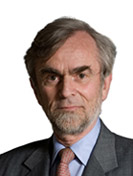 |
Frédéric Jenny, Professor, Economics Department, Co-Director of the European Center for Law and Economics Frederic Jenny is professor of ESSEC Business School in Paris. He is chairman of the OECD Competition Committee (since 1994), and co-director of the European Center for Law and Economics of ESSEC (since 2008). He was previously non executive director of the Office of Fair Trading in the United Kingdom (2007-2014), Judge on the French Supreme Court from 2004 to August 2012, vice chair of the French Competition Authority (1993-2004) and president of the WTO Working Group on Trade and Competition (1997-2004). He was global professor of Antitrust in the New York University School of Law’s Hauser Global Law School (2014), visiting professor at University College London Law School (2005-2012), |
|
|
V. K. Singh, Chief Executive Officer, Innovatiocuris V. K. Singh is CEO Innovatiocuris and adjunct professor, World Health Innovation Network, Odette School of Business, University of Windsor, Canada. He is also visiting professor of Indian Institute Management and Indian Institute of Technology. Among several other positions, has also been deputy chief medical officer of United Nations, having served in 32 countries, adjunct professor of Massachusetts Institute of Technology, (MIT) Zaragoza, Spain and a consultant of National Disaster Management Authority. He was Surgeon Rear Admiral and holds an MBBS degree, and a master's degree in hospital administration among other qualifications. He was awarded a Distinguished Services Medal for services in Zambia by the president of India and developed the European Foundation for Quality Management (EFQM) model for healthcare in India, released by Union Health Minister. He has also authored the book, 'Innovations in Healthcare Management: Cost-Effective and Sustainable Solutions,' published in the USA, in 2015. |
|
Santosh Kumar Mehrotra, Professor of Economics, Centre for Informal Sector and Labour Studies, School of Social Sciences, Jawaharlal Nehru University He was Director-General, Institute of Applied Manpower Research, Planning Commission (in the rank of Secretary, Government of India) (2009-2014). He is a human development economist, whose research and writings have had most influence in the areas of labour/ employment, skill development, child poverty, and the economics of education. He brings a combination of professional experience: with the Indian government as a policy maker and adviser, with international organizations as a technical expert, having lived on three continents and travelled to 63 countries providing technical advice to governments; and as an academic whose research work has been translated into Chinese, French, Spanish, Portuguese, Italian and German. Dr S Mehrotra has an MA in Economics from the New School for Social Research, New School University, New York (1981), and Phd in Economics in Cambridge (1985). Was Associate Professor, Jawaharlal Nehru University, New Delhi 1988-91. |
|
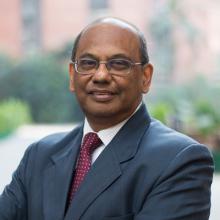 |
Dr. Ajay Mathur, Director General of TERI – The Energy & Resources Institute
Ajay Mathur is Director General of TERI – The Energy & Resources Institute, and a member of the Prime Minister’s Council on Climate Change.
He was Director General of the Bureau of Energy Efficiency in the Government of India from 2006 till February, 2016, and responsible for bringing energy efficiency into our homes, offices, and factories, through initiatives such as the star labelling programme for appliances, the Energy Conservation Building Code, and the Perform, Achieve and Trade programme for energy-intensive industries.
Dr. Mathur was earlier with TERI from 1986 to 2000, and then headed the Climate Change Team of World Bank in Washington DC. He was President of Suzlon Energy Limited, also headed the interim Secretariat of the Green Climate Fund.
He has been a key Indian climate-change negotiator, and was also the Indian spokesperson at the 2015 climate negotiations at Paris. He is a global leader on technological approaches to address climate change; recently, he joined the global group of industrial, financial and think-tank leaders to co-chair an Energy Transitions Commission which will suggest ways for companies and countries to move towards climate-friendly energy futures.
|
|
|
Dr. Istvan Mikola, Minister of State, Ministry of Foreign Affairs and Trade for Hungary Dr.Istvan is MD from Semmelweis Medical University, Budapest, Hungary. He has a specialization in Internal Medicine, Infectology and Public Health from Medical Organizations and Hospital Management, The Wharton School, and University of Pennsylvania, Washington, USA. Dr. Istvan served as the CEO of Hungarian National Blood, Minister of Health Affairs, Member of the Government of the Republic of Hungary 2001 - 2002, Scientific Advisor, Member of Hungarian Parliament 2006 - 2011 (MP), Hungarian Academy of Science, Chairman of the Committee on Health Affairs, Hungarian Parliament 2010 - 2011, Permanent Representative (ambassador) of Hungary to the OECD 2011 - 2014. He is currently serving as The Minister of State, Ministry of Foreign Affairs and Trade for Hungary. |
|
|
Naoki Mori, Executive Coordinator, Director of Knowledge and Communications, Institute for Global Environmental Strategies (IGES). Naoki Mori joined the Institute for Global Environmental Strategies (IGES) in August 2016. He leads the sustainable finance task force in charge of research work and policy recommendations on financial mobilization for implementing the 2030 agenda including SDGs and climate change. Mori was engaged in official development assistance for more than 30 years in the field of financial and technical cooperation in developing countries through Japan International Cooperation agency (JICA), Japan Bank for International Cooperation (JBIC) and the former Overseas Economic Cooperation Fund (OECF). He has had overseas assignments in policy dialogue and project management in Bangladesh, Vietnam, China and USA. He received the National Friendship Award Medal from the Chinese government in 2005 for his achievement as an environment expert in China. |
|
|
Nnenna Nwakanma, Senior Policy Manager, World Wide Web Foundation Nnenna Nwakanma advocates for open data, open government and the open web across Africa, bringing together local and international stakeholders to advance the open agenda. She works to drive forward the Africa Data Consensus, the Africa Open Data Network, the Africa Open Data Conference and the African Declaration on Internet Rights and Freedoms. She represents the Web Foundation at many international fora, including the Global Partnership for Sustainable Development Data. Recently, she pioneered the Foundation’s first gender data project, TechMousso, which brought together the data and tech communities with women’s rights organizations to tackle gender challenges in Côte d’Ivoire. Her career has allowed her to work closely with many civil society organizations, the African Development Bank, the Digital Solidarity Fund and has seen her involved in many phases of the UN’s Africa Information Society Initiative. As well as leading a highly regarded consultancy platform, Nwakanma has in recent years co-founded The Free Software and Open Source Foundation for Africa and served as a board member of the Open Source Initiative. |
|
|
Jozsef Pálinkás, President, Hungarian National Research Development and Innovation Office Professor József Pálinkás is the president of the National Research, Development and Innovation Office of Hungary. As an atomic physicist, he is author or coauthor of more than 1,100 scientific publications, with over 18, 000 citations. In addition to his previous appointments as research professor, and director of the MTA Institute for Nuclear Physics (ATOMKI), research fellow in the US and Sweden, director of the Institute of Physics at the University of Debrecen (UD), and president of the UD, he also served as minister of education (2001–2002), member of parliament (2006–2008) and president of the Hungarian Academy of Sciences (2008–2014). |
|
|
Guillermo Perry, former Minister of Finance, Government of Colombia Guillermo Perry is professor at Universidad de Los Andes, Colombia; non-resident fellow of the Center for Global Development (CGD), Washington D.C; and member of several boards, among them the Global Development Network, the Woodrow Wilson Institute (Latin American Advisory Board), FEDESARROLLO and Banco de Bogotá. Perry was chief economist for Latin America and the Caribbean at the World Bank (1996-2007) and held various positions in his home country, Colombia including minister of finance and public credit (1994 - 1996); minister of mines, and energy (1986 - 1988); member of the constitutional assembly (1991); director of FEDESARROLLO (1988 - 1989) and the Center for Economic Development Studies (CEDE), (1972 – 1974). He has been a visiting professor at the Kennedy School at Harvard University (2010-2011) and Oxford University (1979-1980).Perry is author or coauthor of more than 20 books and many articles on diverse development issues: growth, inequality, public finance, natural resources and trade. He was a PhD candidate in Economics from MIT (1970-1973). |
|
|
Alix Peterson Zwane, Chief Executive Officer, Global Innovation Fund Alix Peterson Zwane is a social entrepreneur and CEO of the Global Innovation Fund, a US$200m fund that takes a venture capital approach to supporting entrepreneurs and the scaling of evidence-based innovation in global health and development. She has previously served as executive director at Evidence Action, a non- profit that leads the Deworm the World Initiative and develops business models for effective development programs. She was senior program officer in the global development group at the Bill & Melinda Gates Foundation and a member of the inaugural team at google.org. Her stint in philanthropy was preceded by experience in management consulting and academia at the University of California, Berkeley. Alix holds a PhD in public policy from Harvard University and has published widely in environmental and development economics journals |
|
|
Sonal Shah, Executive Director, Beeck Center for Social Impact & Innovation at Georgetown University Sonal Shah is executive director of the Beeck Center for Social Impact & Innovation at Georgetown University and a senior fellow at the Case Foundation, which is partnering with Georgetown's Global Social Enterprise Initiative on a variety of impact investing initiatives, including the development of federal, state, and local policies that support the growth of the field. The Case Foundation also just released A Short Guide to Impact Investing, which is public and open to comment. Shah is a former director of the White House Office of Social Innovation and Civic Participation, where she helped push for and develop new models of innovation in government and championed public-private partnerships as the most effective way to solve problems in an era of constrained budgets. In addition to serving as a fellow at the Center for American Progress, Shah has worked as an economist in the Treasury Department, managed environmental strategy for Goldman Sachs, led Google.org's global development initiatives, and co-founded the Center for Global Development and the U.S.-based nonprofit Indicorps |
|
|
Cecilia Ugaz Estrada, Director, Department of Policy Research and Statistics, UNIDO. Prior to joining the United Nations Industrial Development Organization (UNIDO), Cecilia Ugaz Estrada served as the United Nations resident coordinator as well as the United Nations Development Programme (UNDP) resident representative for Paraguay. She also served as the deputy resident representative for UNDP in Argentina and as deputy director for the Human Development Report Office in UNDP headquarters in New York. |
|
|
Howard White, Chief Executive Officer, Campbell Collaboration. Howard White is chief executive officer of the Campbell Collaboration. Previously he was the founding executive director of the International Initiative for Impact Evaluation (3ie), and before that, he led the impact evaluation program of the World Bank's Independent Evaluation Group. White started his career as an academic researcher at the Institute of Social Studies in The Hague, and the Institute of Development Studies, University of Sussex. As an academic, he leans toward work with policy relevance and working in the policy field leans toward academic rigour as a basis for policy and practice. His other interests are running and walking, preferably long distances in remote places, and reading English history. |
RESOURCES
Themes & Focus Areas | Agenda | Speaker Bios | Conference Partners | Awards | Registration & Logistics | Venue Maps | Sponsor this event | Conference Media | Live Webcast













